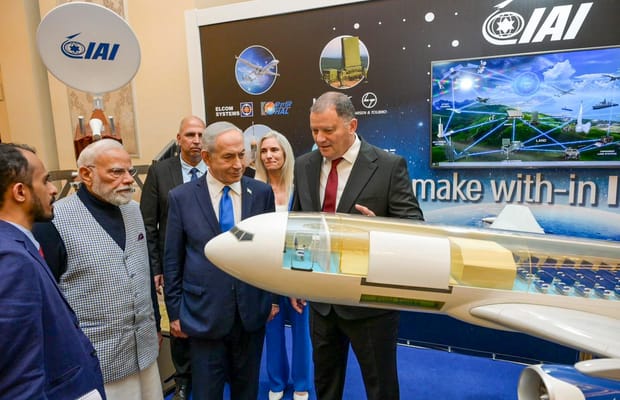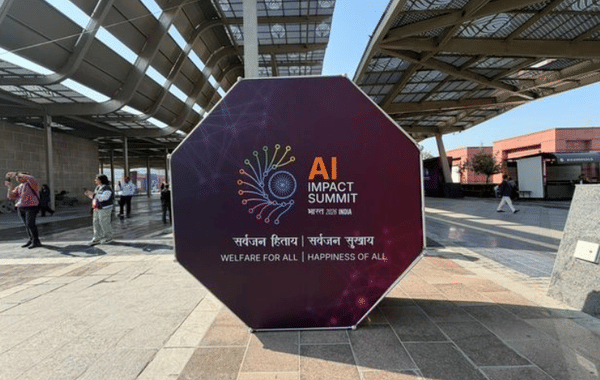



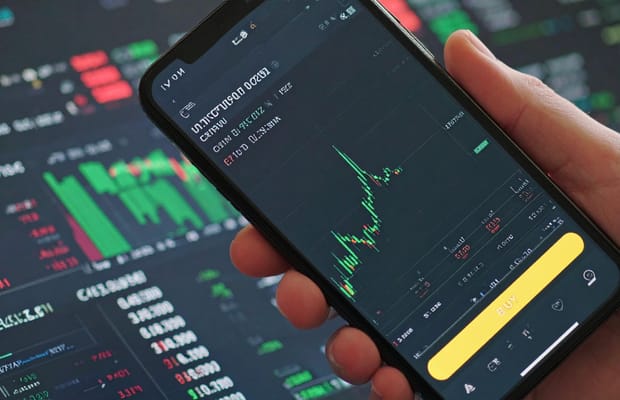
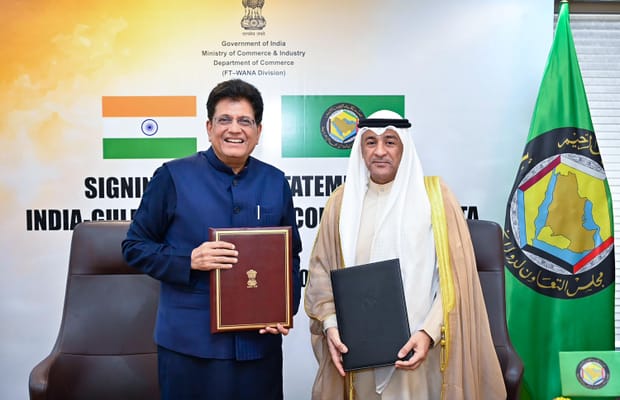

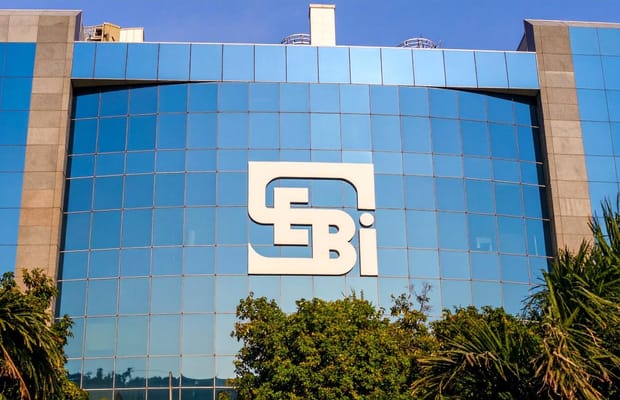



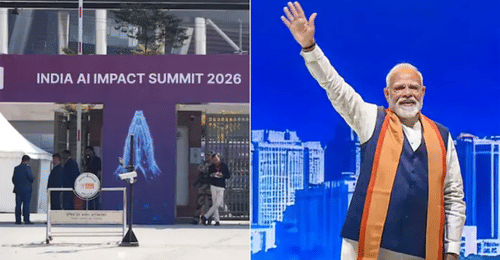
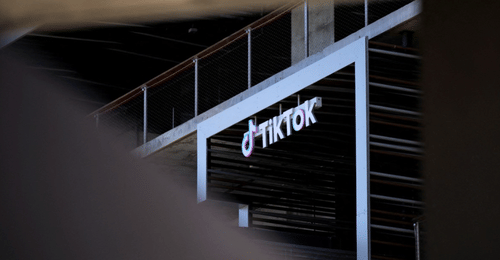
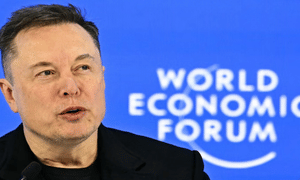
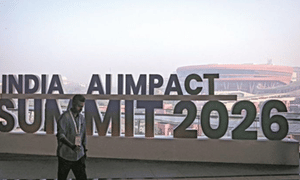



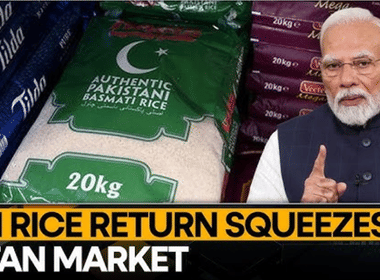



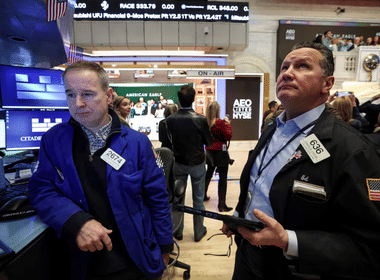
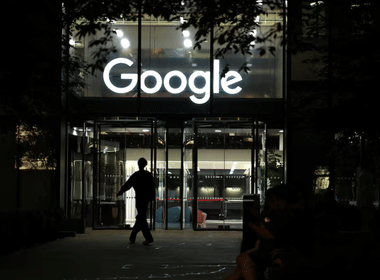
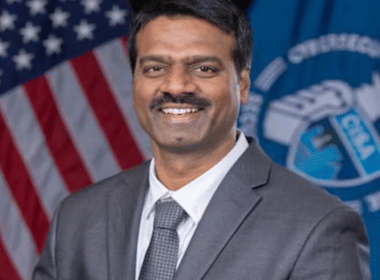
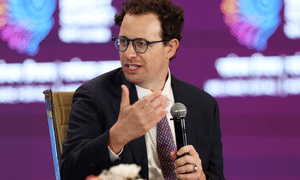
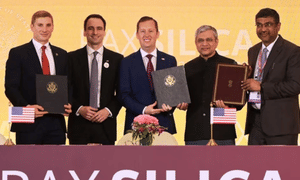
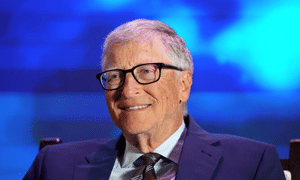
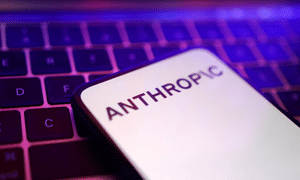


Samsung unveiled the Galaxy S26 series at its Unpacked event on February 25, 2026. The latest models in the flagship S-series bring several new features, including a Privacy Display, an AI-powered Samsung Browser, and Now Nudge, an assistant inspired by Google Pixel’s Magic Cue. On the hardware side, the series features a redesigned camera module, with the Galaxy S26 Ultra standing out as the thinnest Ultra variant Samsung has ever produced.
The Galaxy S26 Ultra introduces a built-in Privacy Display that ensures only the user can see what’s on the screen. This feature protects sensitive information by hiding content from others, and users can choose specific apps or notifications to conceal. Another addition, Now Nudge, is an AI-powered assistant designed to support users subtly during conversations. It can surface relevant content, such as shared photos or calendar events, based on the context of a chat, allowing users to access and share information instantly without leaving the app.
Samsung has also revamped its Internet browser, adding an “Ask AI” feature powered by Perplexity. This tool allows users to ask questions in a conversational manner and gather information from multiple open tabs, compiling it into a single AI-generated summary. The Galaxy S26 Ultra also becomes the first Samsung phone to support APV (Advanced Professional Video), a pro-grade video codec that enables efficient compression while maintaining near-lossless quality, making it ideal for content creators.
Bixby has been upgraded with enhanced AI capabilities, enabling users to navigate settings and features using natural language commands, similar to Microsoft Copilot for Windows. The series also integrates multiple AI agents, including Gemini and Perplexity, allowing users to perform complex, multi-step tasks with a single voice command or button press. For example, booking a taxi can be done simply by asking, reviewing details, and confirming.
On the security front, the Galaxy S26 series introduces AI-powered call screening, which identifies unknown numbers and summarizes the caller’s intent. Privacy Alerts notify users when apps with device admin rights attempt to access sensitive data such as location, call logs, or contacts. Samsung has also enhanced its Photo Assist feature, allowing users to edit images through text prompts. The AI can transform a daytime photo into night, reconstruct missing elements, fix small details, or even modify clothing, with edits applied step by step and easily reviewed or undone for a more flexible experience.
Disclaimer: This image is taken from Business Standard.
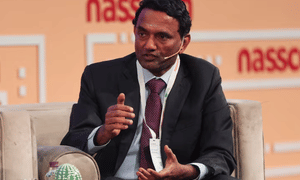
Tata Consultancy Services is actively encouraging its employees to adopt artificial intelligence (AI) tools to deliver work faster, more efficiently, and at lower costs, even if it temporarily impacts the company’s revenue, CEO K Krithivasan said on Wednesday. Speaking at the Nasscom Technology and Leadership Forum in Mumbai, Krithivasan highlighted that employees should inform clients whenever AI can improve performance, regardless of any potential revenue cannibalization.
He emphasized that TCS views AI as an opportunity to enhance productivity and create new value rather than as a threat to jobs. “We are not afraid this technology will take away our livelihood. The more you embrace it, the more benefits you will enjoy,” Krithivasan said, urging employees to welcome the changes AI brings. TCS’ approach mirrors that of its smaller rival Wipro. Hari Shetty, Wipro’s Chief Strategist and Technology Officer, has also projected that AI adoption will expand demand for software services and create more jobs than it displaces.
The comments come amid investor concerns over AI’s potential disruption to India’s traditionally labor-intensive IT sector. In February alone, these worries have erased roughly $68.6 billion in market value, with the Nifty IT index falling 21% as of Tuesday, putting it on track for its worst monthly performance in nearly 23 years. Despite these market jitters, TCS is pushing forward with its AI-driven strategy, positioning itself to leverage technology for efficiency, innovation, and long-term growth in the evolving IT landscape.
Disclaimer: This image is taken from Reuters.
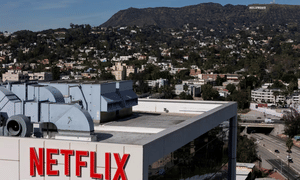
Netflix has significant cash reserves and could raise its bid for HBO Max owner Warner Bros Discovery if rival Paramount Skydance increases its offer, according to sources familiar with the matter. The two media companies are competing fiercely over Warner Bros and its prized franchises, including Harry Potter, Game of Thrones, DC Comics, and Superman.
While Warner Bros is moving ahead with a shareholder vote on March 20 regarding Netflix's proposal, it has given Paramount a week to submit a more attractive bid. Netflix has offered $27.75 per share, totaling $82.7 billion, for Warner Bros’ studio and streaming operations, whereas Paramount has proposed $30 per share, or $108.4 billion, for the entire company, including Discovery Global, which owns CNN, HGTV, and other TV networks. Netflix and Warner Bros declined to comment. Sources noted that Netflix, the company behind Stranger Things, has considerable financial flexibility, holding about $9.03 billion in cash and cash equivalents as of December 31, allowing it to potentially increase its offer.
Warner Bros rejected Paramount’s latest hostile takeover bid on Tuesday but gave the studio until the end of Monday to present a “best and final” offer. Paramount had indicated an informal $31 per share bid. “Netflix appears to be leading, but that could change quickly,” said Matt Britzman, senior equity analyst at Hargreaves Lansdown. He noted that price will likely determine the outcome, adding that funding and regulatory concerns become secondary at a high enough valuation. Britzman expects Netflix to counter any improved Paramount offer, though the final decision may hinge on how much the board and shareholders value the network assets that Netflix would not acquire.
Paramount stated it would continue pursuing its tender offer, oppose the “inferior” Netflix deal, and still plans to nominate directors at Warner Bros’ upcoming annual meeting. Under the merger agreement, Netflix can match any higher offer from Paramount. Warner Bros Chairman Samuel DiPiazza Jr. and CEO David Zaslav reaffirmed their commitment to Netflix in a letter to Paramount’s board.
Paren Knadjian of Eisner Advisory Group said Paramount’s persistence suggests confidence in winning, but the Warner Bros board remains concerned about Paramount’s financing, timing, and regulatory approvals, which weaken the appeal of its offer despite a higher headline price. Paramount had proposed compensating Warner Bros investors for any delay beyond this year and covering the $2.8 billion breakup fee if Warner Bros withdrew from Netflix’s deal. However, the board rejected these terms, citing unresolved issues such as responsibility for a $1.5 billion junior lien financing fee, contingencies if debt financing fails, and the certainty of equity funding led by Larry Ellison.
Disclaimer: This image is taken from Reuters.
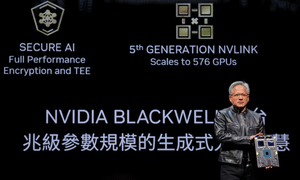
Indian data center firm Yotta Data Services announced plans to build one of Asia’s largest AI computing hubs using Nvidia’s Blackwell Ultra chips, in a project exceeding $2 billion. The initiative includes a four-year collaboration worth over $1 billion, under which Nvidia will deploy one of the Asia-Pacific region’s largest DGX Cloud clusters within Yotta’s infrastructure.
The project comes as global cloud providers such as Microsoft and Amazon expand AI data center capacity in India, responding to rising demand for generative AI services and efforts to localize advanced computing infrastructure. It also coincides with U.S. export controls reshaping global supply chains for advanced AI chips, prompting companies to strengthen partnerships in strategic markets like India.
The AI supercluster is expected to go live by August and will be hosted at Yotta’s data center campus near New Delhi, with supplementary capacity at its Mumbai facility. Yotta, part of Indian billionaire Niranjan Hiranandani’s real estate group, is Nvidia’s partner in India and currently operates three campuses across Mumbai, Gujarat, and near New Delhi.
The investment is part of a broader trend in India’s cloud and AI sector, where infrastructure expansion is driven by both domestic and international demand. Yotta’s hub aims to provide scalable, high-performance computing to support AI research and enterprise applications, positioning India as a key player in the regional AI landscape. Through this partnership, Nvidia gains a strategic presence in India while supporting the deployment of cutting-edge AI hardware, and Yotta strengthens its position as a leading data center provider capable of hosting next-generation AI workloads.
Disclaimer: This image is taken from Reuters.



With decisions delegated, chatbots replacing friends, and nature sidelined, Silicon Valley is shaping a life stripped of real connection. Escape is possible—but it will require a united effort.
Disclaimer: This podcast is taken from The Guardian.

Google has revealed plans for a significant increase in its AI investments in Singapore, featuring the launch of Majulah AI – a collection of training and innovation initiatives aimed at developing an AI-ready workforce. Daniel Martin speaks with Ben King, Managing Director of Google Singapore, about how these efforts will help Singapore achieve its goal of becoming an AI leader and accelerate AI adoption across the nation.
Disclaimer: This podcast is taken from CNA.
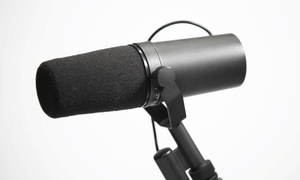
Artificial intelligence is rapidly making inroads into healthcare, offering tools that can answer medical queries, forecast risks, and support personalized health choices. But a new Singapore-based startup is challenging the notion that a single global AI model can safely cater to everyone. With structured screenings and national healthcare systems already in place, is there room for another AI health platform in Singapore? Hairianto Diman and Susan Ng explore this question with Hari V Krishnan, Co-founder and CEO of Genie Health.
Disclaimer: This podcast is taken from CNA.

This year, Nanyang Technological University (NTU) flagged three students for academic misconduct, alleging that they relied on generative AI tools in their assignments. What boundaries should govern AI usage, at what point does it become misconduct, and is it time to rethink how assignments are structured and evaluated? Steven Chia and Otelli Edwards discuss these questions with Associate Professor Ben Leong, director of the AI Centre for Educational Technologies at NUS, and Jeremy Soo, co-founder of Nex AI.
Disclaimer: This podcast is taken from CNA.


